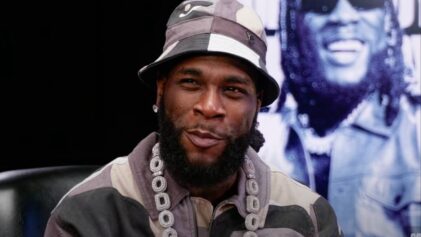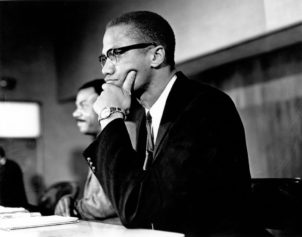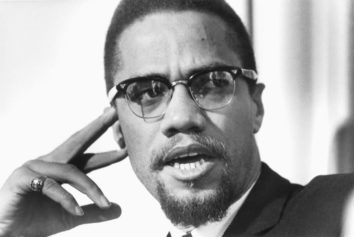Malcolm Shabazz, the grandson of iconic leader Malcolm X who was killed in Mexico City in an apparent beating on Thursday morning, had dedicated his life to helping young people after the trials of his own troubled youth.
Shabazz, 29, became known at the age of 12 when he was convicted for purposely starting the fire that killed his famous grandmother, Betty Shabazz. After spending years in juvenile detention facilities for the arson, Shabazz also served time in prison for other crimes, including robbery. But like his famous grandfather, Shabazz experienced a transformation in prison and emerged with a passion to help others.
In the 2012 book, “Fatherhood: Rising to the Ultimate Challenge,” written by Etan Thomas with Nick Chiles, Shabazz talked at length about the pain he felt in his early years without his father around and how it led directly to many of his troubles.
“The system wanted to break me, but what it did instead was make me stronger,” Shabazz said in the book. “Prison is the type of place that will make you or break you. Most people leave worse off than when they went in, because the system is designed to indoctrinate, not rehabilitate. When I was going through my transformation, I was aware that my grandfather had gone through a similar process in prison.”
Shabazz’s beating occurred in a rundown area of Mexico City called Plaza Garibaldi, which is known for strip clubs and dive bars. Martin Suarez, a labor activist who was in Mexico with Shabazz, told The Associated Press on Friday that Shabazz got into a fight after the bar’s owner insisted that Shabazz pay a $1,200 bill.
Suarez said he found Shabazz injured outside the bar and took him to a hospital. He later died there of his injuries, Suarez said.
Shabazz apparently was in Mexico City to meet with Miguel Suarez, the leader of the activist group RUMEC (Revolutionary United Mexicans in Combat), who had been deported to Mexico from California on April 18.
Mexico’s attorney general’s office said a murder investigation was underway.
“The deceased was in a place of entertainment, drinking beers, according to a companion,” the attorney general’s office said in a statement. “He exhibited various injuries, apparently from blows.”
Salim Adofo, 30, of Washington, D.C., the vice chair of the National Black United Front, who has known Shabazz for seven years, told USA Today that Shabazz traveled the world helping those who were oppressed, regardless of race.
“He still always had to live in the shadow of his grandfather,” Adofo said. “He still carried some of the same truths that his grandfather did and he tried to work with those who were oppressed. He traveled all over the world. Wherever people were suffering, he was there.”
Walid said he hopes Mexican and U.S. authorities would “do a thorough investigation of the cause of Shabazz’s death.”
In the book “Fatherhood,” Shabazz talked about how his father’s absence ate away at him. It was ironic that it was within the family of one of the 20th century’s strongest symbols of manhood that a young boy was so devastated by father absence.
“In the days before I went to prison, when I was caught up in the streets, there were times when I would literally tell myself that it didn’t really matter what I did, because my father wasn’t around,” he said. “I’d say, ‘F**k it. I don’t have a father.’ I’d actually make decisions based on that. I grew up surrounded by women, very strong women. I rebelled against that in search of a male figure. I didn’t even have any uncles … Ultimately, that’s what drove me to the streets. The guys on the corner were the closest thing I could see to a male role model. I gravitated toward the gangsters and the hustlers and that lifestyle. That represented strength to me. From as early as I can remember, I felt like I was under a miscroscope, being the grandson of Malcolm X, the first male heir in his lineage. I wasn’t afford the luxury of making the same mistakes as my peers.”
In the book Shabazz also poignantly expressed his powerful feelings for his daughter and his desire to always be there for her because his father wasn’t there for him.
“Now that I have a daughter, I am more cautious about a lot of things that I do, because I want to be around for her,” he said. “She’s three now, but when she was born I was locked up for a parole violation. That took a toll on me, not being there for that. But having her changed my life a great deal. I love her so much; she’s so important to me, I couldn’t imagine not being there for her.”


